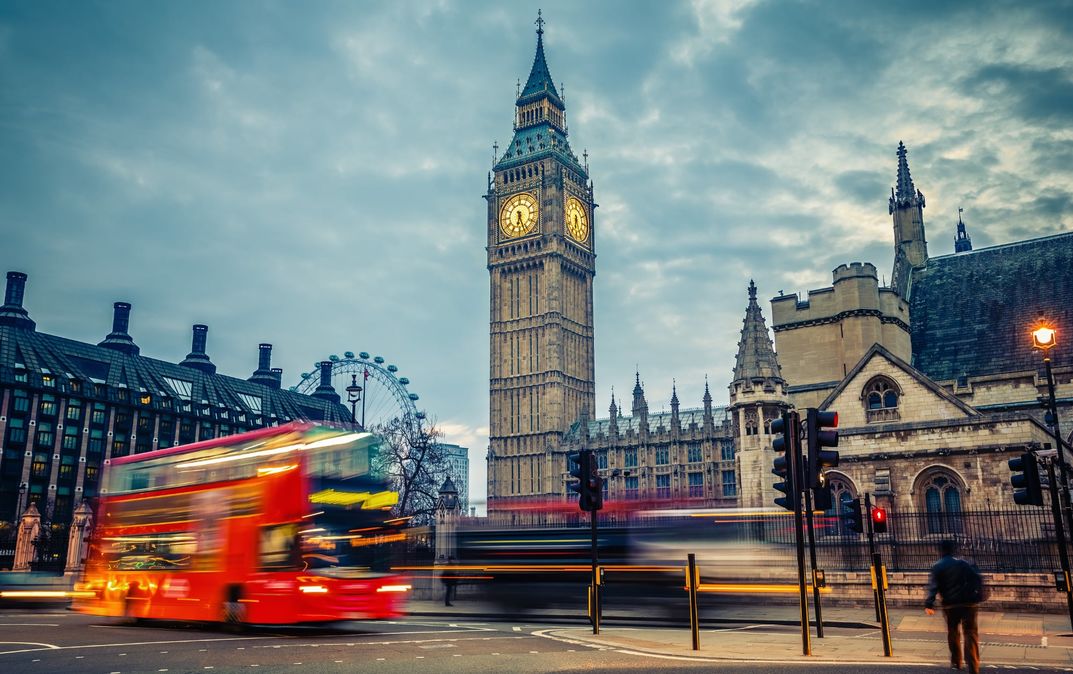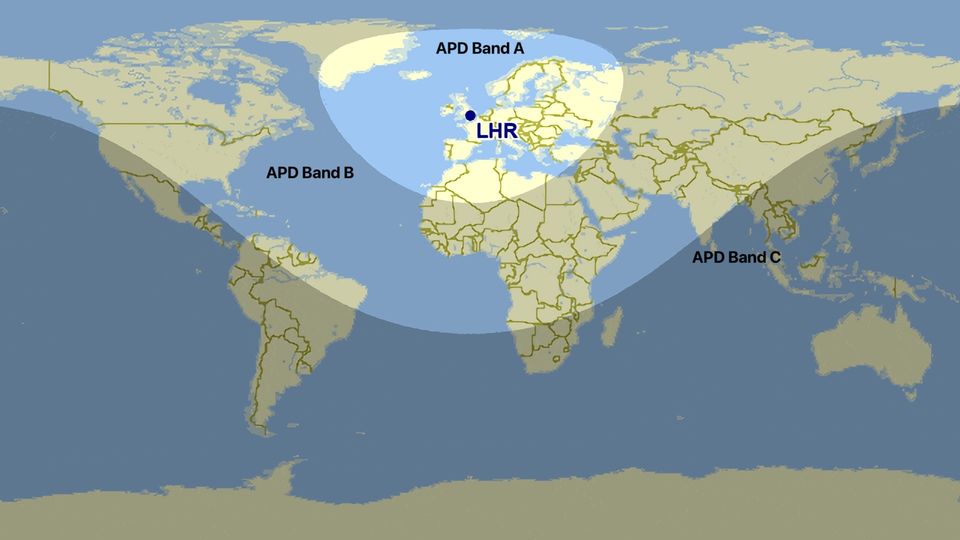UK lifts business class ‘flight tax’ to $500
Passengers in premium cabins will face an even higher departure tax on flights from the UK.

Australians visiting London or anywhere else in the UK are set to be slugged a $500 ‘flight tax’ on premium economy, business class and first class fares when it’s time to head home.
That’s the latest round of increases for the controversial Air Passenger Duty which applies to all commercial flights departing from Britain – a fee which started at a modest £5-10 (depending on distance) when introduced in 1994 as an ostensible airline-wide fuel tax, and has been climbing ever since.
The increased APD fees, announced as part of this week’s budget by the UK’s new Labour government, come ahead of the January 2025 start date for a mandatory £10 (A$20) ‘electronic travel authorisation’ required by all travellers who currently enjoy visa-free status.
Read more: Australians will soon need a travel permit to visit the UK
UK Chancellor Rachel Reeves said the APD “has not kept up with inflation in recent years” – despite an annual incremental rise which already sees the tax set at £202 for long-range international flights in premium economy, business and first class (the economy equivalent is £92).
The previous Conservative government had already earmarked April 2025 for “a one-off adjustment (for) non-economy passengers to account for high inflation in recent years and help to maintain the value of APD in real terms.”
Under that bump, all premium economy, business class and first class travellers departing the UK on flights of over 5,500 miles from London would see a £224 (AUD$440) tax added to their ticket.
Now there’s another jump due in April 2026, with the APD for premium classes on the longest flights (over 5,500 miles, or 8,850km) stepping up to £253 (A$496).
However, the biggest jumps will hit the private jet set, who will see a 50% increase to around £1100 (A$2156) for medium-long range flights on private or chartered business aircraft.
APD levies are broadly determined by the distance of your flight, using London as the starting point, as well as the class of service you’re flying in, with one fee for economy and another for everything above.
One rate is charged for domestic flights within the UK, with international flights falling into one of three distance-based bands:
- Band A is for flights to overseas destinations whose capital city is 2,000 miles or less from London (basically, all of Europe and parts of North Africa)
- Band B is for overseas destinations whose capital city is between 2,001 and 5,500 miles from London
- Band C is for the longest flights, to countries whose capital city is more than 5,500 miles from London, which includes Australia and most of Asia
The lowest rates are for travel classes where the seat pitch is less than 40", which generally covers economy, while seat pitch above 40" attracts a higher rate.
Some canny travellers plan their trip around avoiding the APD sting by flying into the UK but flying out of a European port such as Paris.

03 Mar 2023
Total posts 36
Bloody hell. It explains why it's always cheaper to fly business class into mainland Europe than into the UK. Generally I fly Finnair business to Helsinki or Stockholm and then get a separate economy flight to the UK if I want to go there.
Qantas - Qantas Frequent Flyer
28 Oct 2011
Total posts 467
It doesn't cost any extra to fly *into* the UK; the APD applies to port od departure, not arrival. So it's fine to fly long haul into the UK, just don't depart from there. The classic workarounds are to depart from Dublin, Paris or Amsterdam.
20 Oct 2015
Total posts 245
I'm told another way to avoid the APD is to have a domestic leg within the UK as a connecting flight before your long trip home. It's certainly worth looking into instead of being hit up for another $500!
12 Dec 2012
Total posts 1029
It depends where within the UK the flight departs from. Parts of Scotland and Northern Island have reduced APD or are exempt.
You're also exempt from APD if you're connecting through the UK (in the UK for less then 24 hours between international flights).
APD is the reason I have not had anything more then day trips in London since 2008.
Virgin Australia - Velocity Rewards
24 Jan 2018
Total posts 755
So the APD from LHR to IST will be GBP 28.00 but from LHR to DOH it will be GBP 216.00. Interesting.
Qantas - Qantas Frequent Flyer
23 Sep 2017
Total posts 162
Extortion by any other name.
01 Dec 2012
Total posts 63
As the article notes, you can avoid high APD costs by flying from another airport in Europe. We were recently amazed at the size of the refund from Qantas when we changed our J class tickets to depart from Paris for Perth instead of from Heathrow. As as bonus, the connecting flight from Belfast to CDG was a lot cheaper than to LHR.
09 Sep 2023
Total posts 7
Sweet! Well planned! Taxes drive tax evasion: its human nature.
England will waste the money, no matter how much you give them.
16 Sep 2023
Total posts 1
We always fly to the Far East with Emirates Airlines, sometimes with a stopover at Dubai. Will this itinerary avoid the increased tax? And what about Heathrow, London to an Australian airport via Dubai (or via Abu Dhabi or Doha)?
12 Dec 2012
Total posts 1029
If you are flying from the UK to Australia, you'll pay the Band C amount. Regardless of where you might connect.
If you fly via the Middle East, and stop there for at least 24 hours between flights, you'll only pay the Band B amount.
It would likely be cheaper to travel by land out of the UK to elsewhere in Europe and depart from there, or fly to the European mainland, stay there for 24 hours, then fly home (even if flying back with a connection via London).
17 Nov 2023
Total posts 40
I won't be departing the UK in business class any time soon.
Going out of CDG this time.
Qantas - Qantas Frequent Flyer
10 Jun 2015
Total posts 8
With our weak Australian dollar against the pound that’s going to hurt especially when it’s not convenient to fly out of another location.🤨
22 Sep 2017
Total posts 93
So where does that leave Cathay, where HK is 5976 miles from London but Beijing is 5059 miles? Which “capital” is applicable?
20 Nov 2015
Total posts 470
I have a colleague who flies up to Scotland, I think Edinburgh, and then has his outbound flight set up as EDI-LHR-HKG or EDI-LHR-SIN depending on which office he's flying back to, and this avoids the long-haul APD departure tax.
01 Dec 2011
Total posts 32
That explains why I don't remember having to pay this! Last year, I flew MEL to MAN in J, stayed in UK for about 3 weeks, then to Zurich in economy and back to MEL in J. Emirates in J and Swissair in economy.
Air Canada - Aeroplan
28 Feb 2015
Total posts 115
"The lowest rates are for travel classes where the seat pitch is less than 40", which generally covers economy, while seat pitch above 40" attracts a higher rate."
This is not accurate. If it were, it would mean that Premium Economy also attracts the lowest rate, as most PE seats are 38" seat pitch, but it certainly doesn't. This directly from the UK Government website (note "lowest class of travel"):
Reduced rate
For travel in the lowest class of travel available on the plane for seat pitches less than 1.016 metres (40 inches).
Standard rate
For travel in any other class of travel or where the seat pitch is more than 1.016 metres (40 inches).
Hi Guest, join in the discussion on UK lifts business class ‘flight tax’ to $500